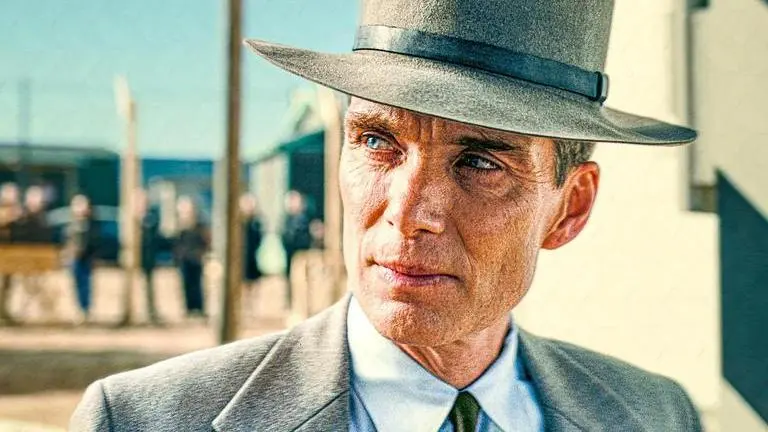Updated 24 July 2023 at 20:46 IST
Oppenheimer features verse from the Bhagavad Gita; here's what it means
The Bhagavad Gita is a 700-verse Hindu text written in Sanskrit that centres on a conversation between Lord Krishna and Arjuna, a famous warrior prince.
- Entertainment News
- 2 min read

Christopher Nolan’s Oppenheimer made its global theatrical debut on July 21. However, it landed in controversy in India because of a scene featuring a verse from ancient Sanskrit scripture, Bhagavad Gita. The titular character appeared to be having sex while reading out the verse from the holy book. It irked a section of social media users, who demanded the removal of the sequence from the movie. So, what is the verse about?
2 things you need to know
- Oppenheimer stars Cillian Murphy in the lead role.
- It is a biopic based on American physicist Robert J Oppenheimer.
What is the meaning of Bhagavad Gita quote?
The Bhagavad Gita is a 700-verse Hindu text written in Sanskrit. It focuses on a conversation between Lord Krishna, an avatar of Vishnu, and Arjuna, a famous warrior prince. Arjuna, who is about to lead his men into battle to death, refuses to start a fight with friends and family. In response, Lord Krishna says that Arjuna must carry out his duty as a warrior to battle and kill.
Arjuna requests Krishna to reveal his divine appearance to the prince in the Bhagavad Gita's eleventh verse. Krishna performs this by changing into a being with infinite mouths and infinite eyes and saying the phrase "Now, I am become Death, the destroyer of worlds."
Advertisement
(The Bhagavad Gita quote was recited during a sex scene between Cillian Murphy and Florence Pugh | Image: Still from the movie)
Oppenheimer’s connection with Bhagavad Gita
According to Dr Stephen Thompson, a PhD in Sanskrit grammar and DPhil at Oxford University, Oppenheimer might have mentioned the verse as both he and Arjun were unwillingly dragged into a "greater" war. The physicist also recited the quote during his appearance in the 1965 NBC News documentary The Decision to Drop the Bomb, which was released 20 years after the Hiroshima and Nagasaki bombings.
Advertisement
He said, “We knew the world would not be the same. A few people laughed, and a few people cried. Most people were silent. I remembered the line from the Hindu scripture, the Bhagavad Gita; Vishnu is trying to persuade the prince that he should do his duty, and to impress him, takes on his multiarmed form and says, ‘Now I am become Death, the destroyer of worlds.’ I suppose we all thought that, one way or another.”
Published By : Anjali Negi
Published On: 24 July 2023 at 20:20 IST

